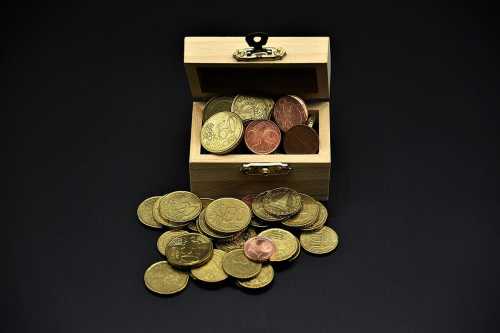
NASHVILLE, Tenn. — NASHVILLE, Tenn. (AP) — “If I hadn’t been a girl, I’d have been a drag queen.”
Dolly Parton has uttered those words famously and often. But if she really were a drag queen, one of Tennessee’s most famous daughters would likely be out of a job under legislation signed into law by Republican Gov. Bill Lee on Thursday.
Lee signed off on the legislation without issuing a statement or having a public ceremony. The bill goes into effect July 1.
Across the country, conservative activists and politicians complain that drag contributes to the “sexualization” or “grooming” of children. Several states are considering restrictions, but none has acted as fast as Tennessee. The efforts seek to extinguish popular “ drag story hours ” at which queens read to kids. Organizers of LGBTQ Pride events say they put a chill on their parades. And advocates note that the bills, pushed largely by Republicans, burden businesses in an un-Republican fashion.
The protestations have arisen fairly suddenly around a form of entertainment that has long had a place on the mainstream American stage.
Milton Berle, “Mr. Television” himself, was appearing in drag on the public airwaves as early as the 1950s on “Texaco Star Theater.” “RuPaul’s Drag Race” is a bona fide cultural phenomenon. Highly popular drag brunches bring revenue to restaurants. That such spectacles are now being portrayed as a danger to children boggles the minds of people who study, perform and appreciate drag.
“Drag is not a threat to anyone. It makes no sense to be criminalizing or vilifying drag in 2023,” said Lawrence La Fountain-Stokes, a professor of culture and gender studies at the University of Michigan and author of “Translocas: The Politics of Puerto Rican Drag and Trans Performance.”
“It is a space where people explore their identities,” said La Fountain-Stokes, who has done drag himself. “But it is also a place where people simply make a living. Drag is a job. Drag is a legitimate artistic expression that brings people together, that entertains, that allows certain individuals to explore who they are and allows all of us to have a very nice time. So it makes literally no sense for legislators, for people in government, to try to ban drag.”
Drag does not typically involve nudity or stripping, which are more common in the separate art of burlesque. Explicitly sexual and profane language is common in drag performances, but such content is avoided when children are the target audience. At shows meant for adults, venues or performers generally warn beforehand about age-inappropriate content.
The word “drag” does not appear in the Tennessee bill. Instead, it changes the definition of adult cabaret in Tennessee’s law to mean “adult-oriented performances that are harmful to minors.” It also says “male or female impersonators” now fall under adult cabaret among topless dancers, go-go dancers, exotic dancers and strippers.
The bill then bans adult cabaret from public property or anywhere minors might be present. It threatens performers with a misdemeanor charge, or a felony if it’s a repeat offense.
The bill has raised concerns that it could be used to target transgender people, but sponsors say that is not the intent.
The Tennessee Pride Chamber, a business advocacy group, predicted that “selective surveillance and enforcement” will lead to court challenges and “massive expenses” as governments defend an unconstitutional law that will harm the state’s brand.
“Tourism, which contributes significantly to our state’s growth and well-being, may well suffer from boycotts disproportionately affecting members of our community who work in Tennessee’s restaurants, arts, and hospitality industries,” chamber President Brian Rosman wrote in an email to The Associated Press. “Corporations will not continue to expand or relocate here if their employees — and their recruits — don’t feel safe or welcomed in Tennessee.”
John Camp, a Pride organizer in Knoxville, said the event in Tennessee's third-largest city will be somber this October — describing it as “more of a march than a celebration.” There were 100 drag performers last year, he said, but he is unsure how many can participate this year.
Several other states, including Idaho, Kentucky, North Dakota, Montana, Oklahoma and Utah, are considering similar bans. And the Arkansas governor recently signed a bill that puts new restrictions on “adult-oriented” performances. It originally targeted drag shows but was scaled back following complaints of anti-LGBTQ discrimination.
“I find it irresponsible to create a law based on a complete lack of understanding and determined willful misinterpretation of what drag actually is,” Montana state Rep. Connie Keogh said in February during floor debate. “It is part of the cultural fabric of the LGBTQ+ community and has been around for centuries.”
Tennessee state Sen. Jack Johnson, the Republican sponsor, says his bill addresses “sexually suggestive drag shows” that are inappropriate for children.
Months ago, organizers of a Pride festival in Jackson, west of Nashville, came under fire for hosting a drag show in a park. A legal complaint spearheaded by a Republican state representative sought to prevent the show, but organizers reached a settlement to hold it indoors, with an age restriction.
And in Chattanooga, false allegations of child abuse spread online after far-right activists posted video of a child feeling a female performer’s sequined costume. Online commentators falsely said the performer was male, and it has gone on to be used as a rationale to ban children from drag shows.
“Rather than focus on actual policy issues facing Tennesseans, politicians would rather spend their time and effort misconstruing age-appropriate performances at a library to pass as many anti-LGBTQ+ bills as they can," Sarah Warbelow, legal director for the Human Rights Campaign, said in a statement last week.
At times, the vitriol has become violence. Protesters, some of them armed, threw rocks and smoke grenades at one another outside a drag event in Oregon last year.
The Tennessee drag bill marks the second major proposal targeting LGBTQ people that lawmakers in the state have passed this year. Last week, lawmakers approved legislation that bans most gender-affirming care. Lee also signed that bill into law on Thursday.
Lee was fielding questions Monday from reporters about the legislation and other LGBTQ bills when an activist asked him if he remembered “dressing up in drag in 1977.” He was presented with a photo that showed the governor as a high school senior dressed in women’s clothing that was published in the Franklin High School 1977 yearbook. The photo was first posted on Reddit over the weekend.
Lee said it is “ridiculous” to compare the photo to “sexualized entertainment in front of children.” When asked for specific examples of inappropriate drag shows taking place in front of children, Lee did not cite any, only pointing to a nearby school building and saying he was concerned about protecting children.
___
McMillan reported from northeastern Pennsylvania. Associated Press writers Jonathan Matisse in Nashville and Amy Beth Hanson in Helena, Montana, contributed to this report.
Sourse: abcnews.go.com






